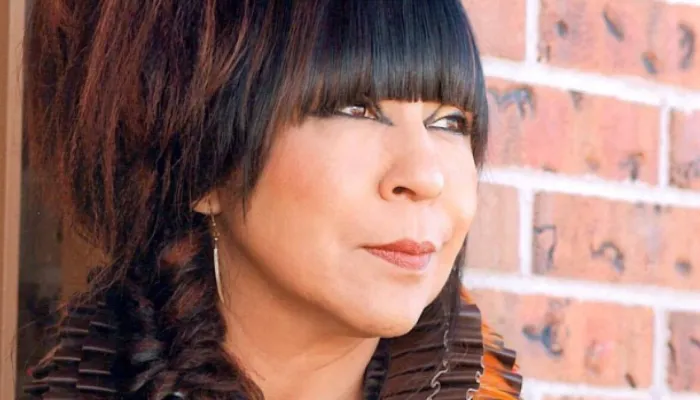Lisa Richter
Biography
Lisa Richter is an award-winning poet, writer, and educator known for her warm, engaging teaching style. She is the author of two books of poetry, Closer to Where We Began (Tightrope Books, 2017) and Nautilus and Bone (Frontenac House, 2020), winner of the National Jewish Book Award for Poetry, the Canadian Jewish Literary Award for Poetry, the Robert Kroetsch Award, and longlisted for the Raymond Souster Award. Her third book of poetry, Sublunary, is forthcoming with University of Alberta Press in Spring 2026. Her poetry has previously appeared in Best Canadian Poetry 2024, The Fiddlehead, The Malahat Review, The New Quarterly, and Literary Review of Canada. She has been a finalist for a National Magazine Award, the Pushcart Prize, and Best of the Net. Her work has been longlisted for the CBC Poetry Prize, and won first place in CV2 Magazine’s annual 2-Day Poem Contest in 2017. Her personal essays have been featured in the anthologies Voices for Diversity and Social Justice: A Literary Education Anthology (Rowman and Littlefield, 2015) and Locations of Grief: An Emotional Geography (Wolsak and Wynn, 2020). With a B.Ed in Adult Education from Brock University, a TESL certificate, and an MFA in Creative Writing from the University of Guelph, Lisa has more than two decades of experience teaching diverse groups of youth and adults. In addition to working with Poetry in Voice, she has taught the Emerging Writers summer workshop at the prestigious Sage Hill Writing Experience, the University of Guelph-Humber, and facilitated workshops in community-based settings with the Writers Collective of Canada. She lives and works in Tkaronto/Toronto.
Micro-interview
The first poet who transformed the way I looked at poetry was Jim Morrison, lead singer of The Doors, whose posthumously published poetry collection "Wilderness" introduced me to the idea that poetry and songs were the most enduring of all literary forms, and to the wild, strange, lyric voice that I became enamoured with. I read poetry throughout high school - Margaret Atwood, Leonard Cohen, and Sylvia Plath stand out to me as poets who were important to me at the time. I was very fortunate to have an English teacher who introduced us to T.S. Eliot, Emily Dickinson, and Gerard Manley Hopkins, among others, and who taught me to approach a new poem with a spirit of curiosity and following my impressions and intuition. One poem that I particularly loved was e.e. cummings' "somewhere i have never travelled," which I took it upon myself to memorize and can recite (mostly) to this day!
I think I wrote my first poem in my journal at age eight. As a child, I was passionate about drawing and painting, but during my teen years, writing (and in particular, poetry) overtook visual art as my primary creative outlet. I wrote and revised poems relentlessly, and even had compiled a 50-page manuscript by the time I had finished high school, which I never published, probably for the best--I was far from being ready. I honestly can't remember when I began to think of myself as a poet - my mid-teen years, most likely, though I don't think I had the courage to tell many people about it, or send out my work (which was much harder to do in those pre-Internet days). I think what mattered most was that I did the work - it gave me joy, it obsessed me, and gave me permission to rethink/imagine/conceive of my world through language.
I think the poet's job is, quite simply, to write poems. And keep writing them, even though the world conspires to distract you and rob you of your creative impulses. Also, to be vigilant, and pay close attention, which the poet Mary Oliver considered akin to devotion. I've often thought that to be a poet, you need a thin skin to let the world in, and a thick skin to deal with rejection, failure, and the test of one's will, endurance (and sometimes sanity) that goes with putting one's work out into the world. There's a quote I like from the Talmud (paraphrasing) that you are not obligated to complete the work, but neither are you free to abandon it. That's how I see poetry. Not as a job, but as a path, a rocky one at times, a risky one, but far riskier, in my mind, not to follow, once you've discovered it.
That's a hard one - there are so many good ones, it's an embarrassment of riches! There are so many old and new favourites of mine, from Allen Ginsberg's "Supermarket in California" to Frank O'Hara's iconic "The Day Lady Died" to more recent now-iconic poets Ocean Vuoung and Liz Howard. But if I had to choose one, I would choose Alice Oswald's "A Short Story of Falling," inspired by her Griffin Poetry Prize shortlist reading in 2017. She recited her poems from memory, and it was spellbinding. I'd love to take on the challenge of memorizing one of her gorgeous poems.


